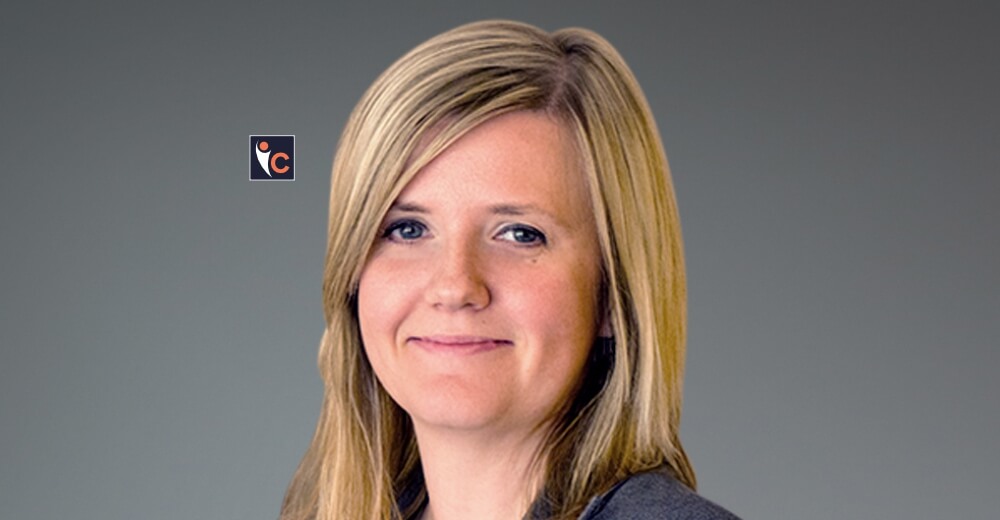Leadership in life sciences isn’t just about being ambitious and passionate, it’s also about inspiring growth and innovation. Leading the charge with this philosophy is Dr. Beatrice Setnik, PhD, Chief Scientific Officer at Altasciences—a contract research organization (CRO) and contract drug manufacturing organization (CDMO) that is navigating the evolving landscape of drug development with finesse, purpose, and innovation.
Altasciences is renowned for its commitment to pioneering early-phase research and development methodologies, supporting biotechnology and pharmaceutical companies of all sizes with their diverse pipeline of promising new drugs. In recent years, the spotlight has turned to emerging psychedelic drugs for treating major depressive disorder and other psychiatric conditions. With Dr. Setnik’s guidance, Altasciences has swiftly adapted, recognizing the unique attributes of psychedelic compounds, and developing safe and efficient clinical methods for their study in the early phases.
As the managing director of the Cross-Company Abuse Liability Council, Dr. Setnik has facilitated crucial dialogues with the FDA and key stakeholders, shaping adaptations to clinical trial designs to evaluate psychedelics.
Our recent interaction with Dr. Beatrice Setnik sheds light on her remarkable professional journey and her pivotal role in illuminating the path forward in life sciences.
She is setting a shining example for leaders in the field with her dedication to advancing science and improving lives!
Dr. Setnik, can you share with our readers a brief overview of your professional journey in the field of clinical drug development and abuse potential assessment, leading up to your current role at Altasciences?
My interest in science started early in life. This passion led me to the University of Toronto where I earned a Bachelor of Science in Toxicology and a Doctorate in Pharmacology and Neuroscience. Although I was initially interested in forensic science, my career took a different turn with my first industry role as a Research Scientist for Kendle Early Stage (formerly Ventana and Decisionline Clinical Research), where I was responsible for providing scientific input on various specialty Phase I and II clinical trials, including abuse potential studies for central nervous system (CNS)-active drugs. Designing study protocols and analyzing clinical data was fascinating, and I became increasingly interested in the day-to-day business activities of a CRO. I took on a business development role and was instrumental in creating their scientific content and building business partnerships with sponsors.
After that, I transitioned over to the pharmaceutical side where I led the medical affairs and clinical development of several pain compounds and abuse-deterrent opioids during my tenure at King Pharmaceuticals and Pfizer. After many rewarding years of drug development, I rejoined my team in Toronto, which was then under INC Research, where I led the scientific and medical writing teams and continued to support early-phase clinical trials and abuse potential evaluation. Fast forward to today, I’ve been the Chief Scientific Officer at Altasciences since 2019, as well as an Adjunct Professor for my alma mater in the Pharmacology and Toxicology Department. I am also proud to be the Managing Director of the Cross-Company Abuse Liability Council, as well as their Lead for the Clinical Subgroup.
As the Chief Scientific Officer at Altasciences, what key leadership principles have you found most crucial in steering the company towards success in the field of drug development?
One of the key leadership principles I have found most crucial is inspiring others to pursue new challenges. Our field is constantly changing, with new therapies, evolving science, and the need to continually adapt our clinical trial methods to meet the demands of drug development. Early-phase studies have become increasingly more complex as there is more demand for early proof-of-concept explorations and the need to evaluate more data and endpoints in preliminary first-in-human studies. With this, inspiring our teams to take on new challenges and techniques is critical in our success to be on the innovative edge of preclinical and clinical research, as well as lead the way in novel approaches to drug development.
In what ways do you foster innovation within the company to ensure it stays at the forefront of the industry, particularly during the early stages of drug development?
The key to early research success is ensuring that sponsors have the regulatory support and strategy in place to ensure a smooth transition through the different phases of drug development. At Altasciences, we have a global advisory team that works jointly with our regulatory experts to support our clients in navigating their pivotal milestones with regulators. This team stays current with regulatory changes and new guidelines so that we are at the forefront of regulatory requirements in different countries. In the early phases, we provide comprehensive solutions to our clients, ensuring that they have a complete IND package and a solid clinical plan to obtain IND approval and experience a streamlined transition from preclinical to clinical.
In addition, we are constantly evolving our preclinical, clinical, bioanalytical, manufacturing and formulation services to meet the ever-changing demands of the industry and their drug development pipelines. This requires us to be in tune with our clients and their needs, as well as the ability to think outside of the box. Often, we need to forge the way with new methods and have these reviewed to ensure regulatory approval. Innovation requires quick adaptation in our industry, and we are very nimble in this regard.
How does Altasciences’ flexible approach to drug development set it apart from other service providers, and what advantages does it offer to pharmaceutical and biotechnology companies?
Altasciences streamlines the early-phase drug development experience for pharmaceutical and biotechnology sponsors by integrating preclinical safety testing, clinical research, bioanalysis, drug formulation and manufacturing, as well as the full array of complementary research services, such as medical writing, clinical monitoring, protocol development, and PK/PD—all provided within our one organization. Sponsors can partner with us for multiple stages of their journey—or a single service. We treat drug development as a continuum, instead of a series of steps to be handled by different CROs and CDMOs. What this type of integration allows is for our scientific and operational teams from across phases and departments to move as one larger, unified team on a sponsor’s project, leveraging data and insight from each other to plan the client’s roadmap, and anticipate and proactively address potential roadblocks. This approach eliminates communication gaps between various development stages to provide seamless and rapid transitions from one milestone to the next, which can accelerate their timelines by up to 40%.
How do your academic pursuits complement your work in the industry, and what insights do you bring from academia to enhance Altasciences’ approach?
Academia is focused on novel research and innovation. It requires out-of-the-box thinking when you are selecting a thesis that is novel and building on the existing science. Attention to detail, passion for discovery, and application of the scientific method are instrumental to the research that is conducted in either an academic or industry setting. Many of the laboratory, clinical, and scientific skills I acquired in academia―including medical writing and oral presentations―have been instrumental in expanding the scientific team at Altasciences and fine-tuning our science. Publications and presentations on emerging data with stakeholders in the field are important parts of what we do at Altasciences, to help advance medicine and research.
How do you see your role at Altasciences contributing to the broader landscape of healthcare, and what initiatives has the company undertaken under your leadership?
Our company has evolved considerably in the last five to ten years. For starters, we have grown our capabilities into various sectors to support early-phase drug development, to include four preclinical facilities, three bioanalytical laboratories, a formulation and manufacturing facility, and three clinical trial facilities. I have contributed to the expansion of our specialty services and expertise in CNS drug evaluation, and we have performed many complex studies evaluating driving simulation, EEG, abuse and dependent potential assessment, and applications of various models, including pain models. We have also expanded, and continue to expand, our patient access model for integration into early-phase studies.
What advice would you give to aspiring scientists and leaders looking to make a significant impact in the healthcare and drug development sectors?
What I tell my students at the University of Toronto, as they work towards their future careers in science is that, as scientists, our role is to conduct ourselves with integrity and to ensure that animal and human participants are treated with dignity and respect. When your values in science are centered on ethics, everything else will follow. When deciding on a career path, select one based on your passion and interest; this will take you further in your career and give you the drive to succeed. Most importantly, never be afraid to ask questions and explore new things—science is about discovery and asking questions. Helping to bring new therapeutics to treat patients is extremely rewarding, and in this field, you will find the joy that comes with contributing to such noble causes.
Read More: Click Here










